AS A RESULT OF COVID AND THE INITIAL ‘HARD LOCKDOWN” IMPLEMENTED BY GOVERNMENT ALL OF THE CHAMPIONS FOR CHANGE EVENTS PLANNED FOR 2020 HAD TO BE POSTPONED INDEFINITELY.
Led by Arne Rust, CBL decided to launch a campaign called the Bravest Thing to provide a helpline for men and women who were either victims of abuse or perpetrators / potential perpetrators. A WhatsApp number was set up which anyone who was either a victim of abuse or abuser or potential abuser could use to reach out silently and anonymously for help.
There were two options for people reaching out for help through the WhatsApp number, the first for people who were victims of abuse or fearful of becoming a victim and the second for men in distress (who may themselves be an abuser or potential abuser) to reach out to a brother. The first option was routed to the Helpline and the second routed to one of the FAN mentors via Foneworx.
Each mentor would receive numbers without any names which they responded to by sending an introductory WhatsApp message.
This would lead to either a WhatsApp interaction or telephonic discussions or both. Where appropriate the mentors would send links to #NOEXCUSE material, the e-format booklets and the 6-Pack video clips.
Although the 16 mentors were initially contracted for six months to run three cycles of Champion Conversations, we extended their contracts to handle the calls that were coming through. We kept 16 mentors on board until the end of September and thereafter reduced the number to 10 active mentors who have remained on board into 2021.
Each mentor would receive numbers without any names which they responded to by sending an introductory WhatsApp message.
This would lead to either a WhatsApp interaction or telephonic discussions or both. Where appropriate the mentors would send links to #NOEXCUSE material, the e-format booklets and the 6-Pack video clips.
Although the 16 mentors were initially contracted for six months to run three cycles of Champion Conversations, we extended their contracts to handle the calls that were coming through. We kept 16 mentors on board until the end of September and thereafter reduced the number to 10 active mentors who have remained on board into 2021.
MOTIVATION MIX:
For the period 14 April to 31 December 11,853 people reached out via the WhatsApp Bravest thing number. In early September when the numbers were sitting at 9,564, we analysed the motivation for people responding to the campaign and found the following mix:
Men in distress needing assistance:
Approximately 60%. Their issues ranged from being abusers, abused, stress, suicidal, angry, depressed, addictions, cheating, unemployed, witnesses of GBV and those who want clarity about GBV.
No response:
Approximately 15%. Didn’t respond to messages or when called just went to voice mail (this figure may have been skewed by the delayed response to the messages caused by a failure in the Foneworx system).
Women:
Approximately 11%. Most were referred to Lifeline. In the event they were calling on behalf of their partners, the mentors made an attempt to counsel the men through the women.
Not serious:
Approximately 10%. These individuals either denied having sent a WhatsApp, claimed it was sent by someone else, never called back when they said they would or wanted information about completely unrelated matters.
Seeking connection:
Approximately 4%. These responders called to compliment the program, get guidance on how to be a benefit to their communities or simply just connect.
BREAKDOWN OF NUMBERS BY MONTH:
“I want my kids to see a father when I enter my house, I don’t want them to see a monster. I want them to always trust me and talk to me.“
– Anonymous
CHALLENGES:
SUCCESSES:
STORIES
So many lives have been positively impacted by the Bravest Thing Campaign and here are just a few of their stories. Names have mostly been left out to respect confidentiality.
Quotes from WhatsApp Brave Line:
“We have been complacent for too long. We need to fight for our daughters, mother and sisters.”
“We need to call each other out as men and we need to protect our women.”
“Sharing is good, it helped me create a better relationship with my son.”
“I’m done letting people hold the pen and write my life story, I will now write my own life story and a good one.”
“I’m done making excuses and blaming people for things that I’m responsible for.”
“I will not use my strength to do wrong, I will use my strength to build myself.”
“I want my kids to see a father when I enter my house, I don’t want them to see a monster. I want them to always trust me and talk to me.”
“I will no longer let what my father did to my mother affect how affect how I see and treat women.”
“I will now get a mentor and look up to people that do good in my community, not thugs.”
“Anger has controlled me for too long. I will not let it make me a bad person.”
STORIES
So many lives have been positively impacted by the Bravest Thing Campaign and here are just a few of their stories. Names have mostly been left out to respect confidentiality.
Quotes from WhatsApp Brave Line:
“We have been complacent for too long. We need to fight for our daughters, mother and sisters.”
“We need to call each other out as men and we need to protect our women.”
“Sharing is good, it helped me create a better relationship with my son.”
“I’m done letting people hold the pen and write my life story, I will now write my own life story and a good one.”
“I’m done making excuses and blaming people for things that I’m responsible for.”
“I will not use my strength to do wrong, I will use my strength to build myself.”
“I want my kids to see a father when I enter my house, I don’t want them to see a monster. I want them to always trust me and talk to me.”
“I will no longer let what my father did to my mother affect how affect how I see and treat women.”
“I will now get a mentor and look up to people that do good in my community, not thugs.”
“Anger has controlled me for too long. I will not let it make me a bad person.”
COMMON QUESTIONS AND THEMES:
COMMON QUESTIONS AND THEMES:
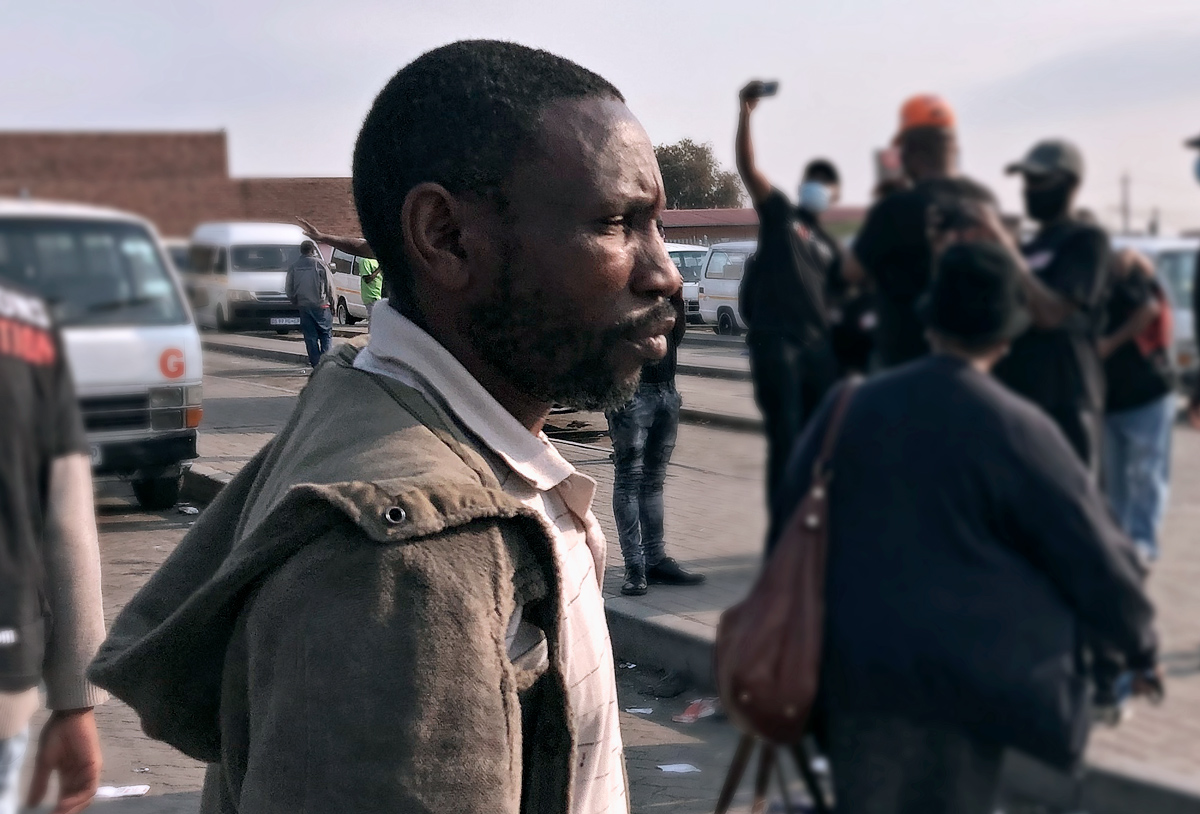





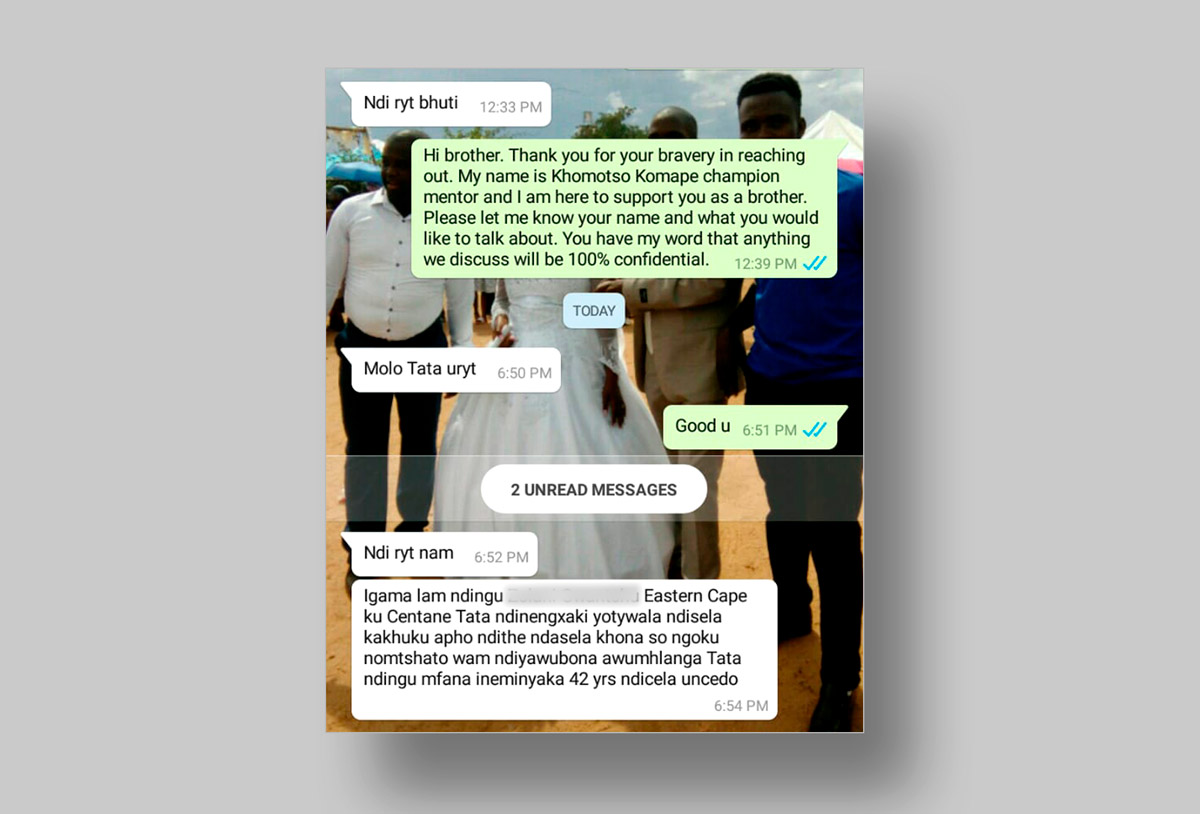
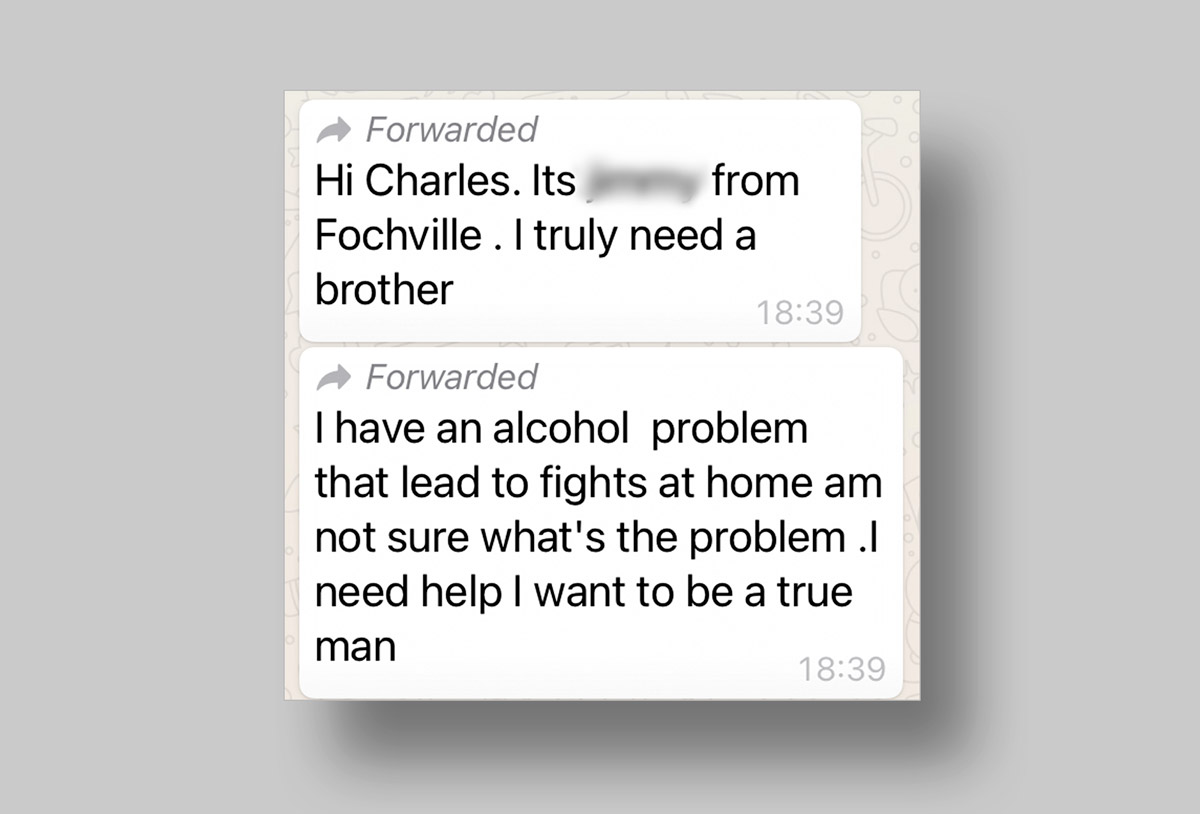
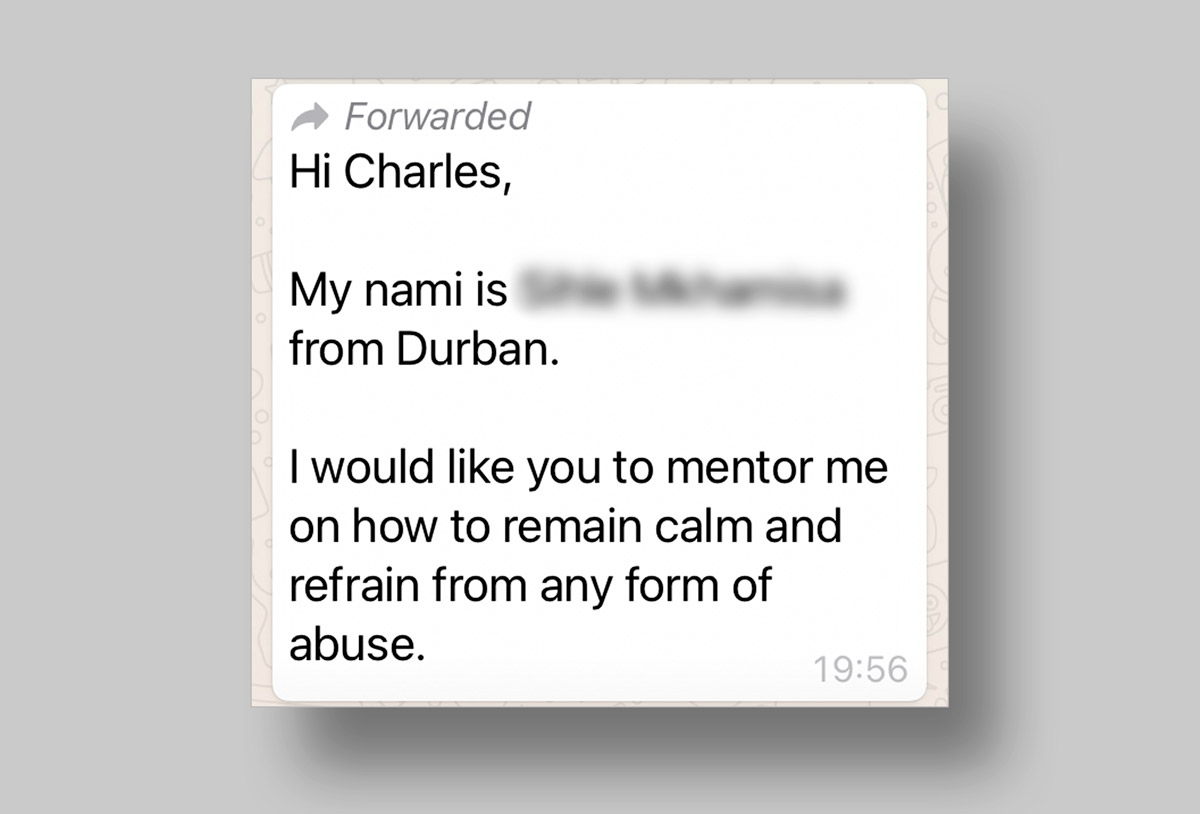
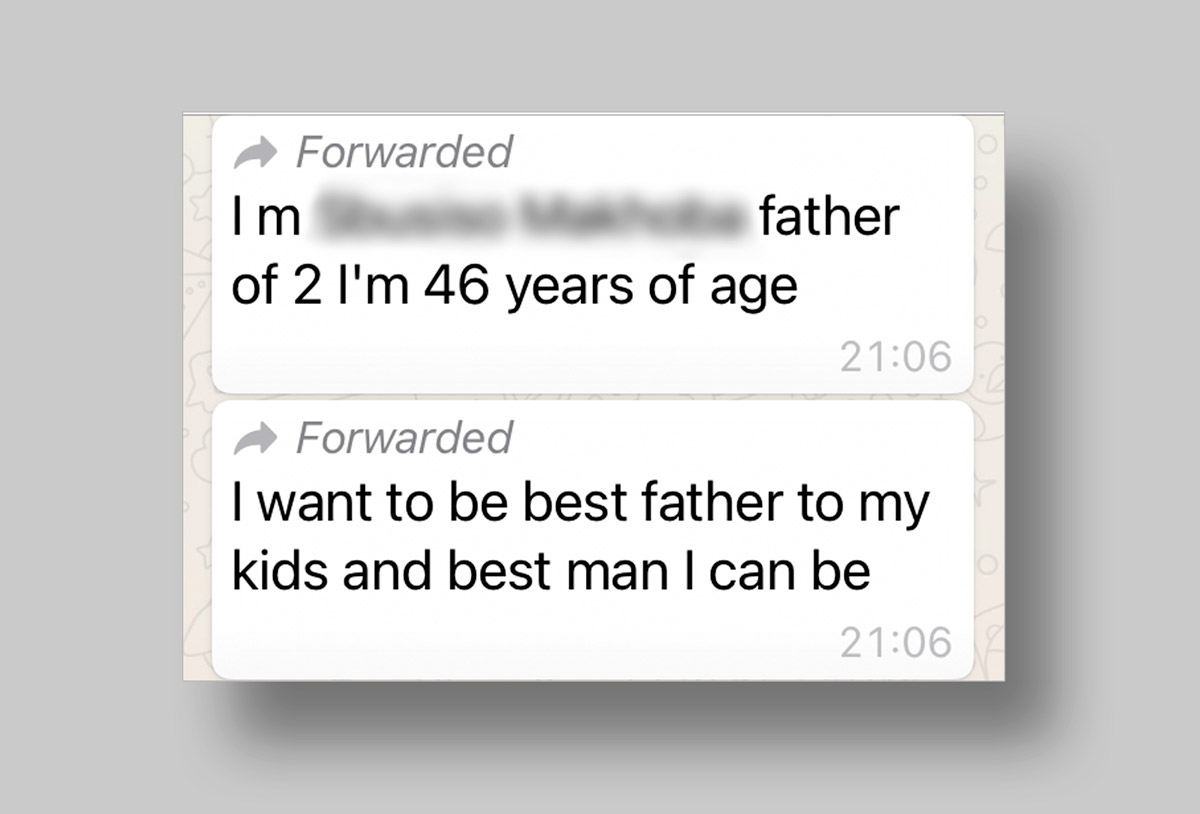
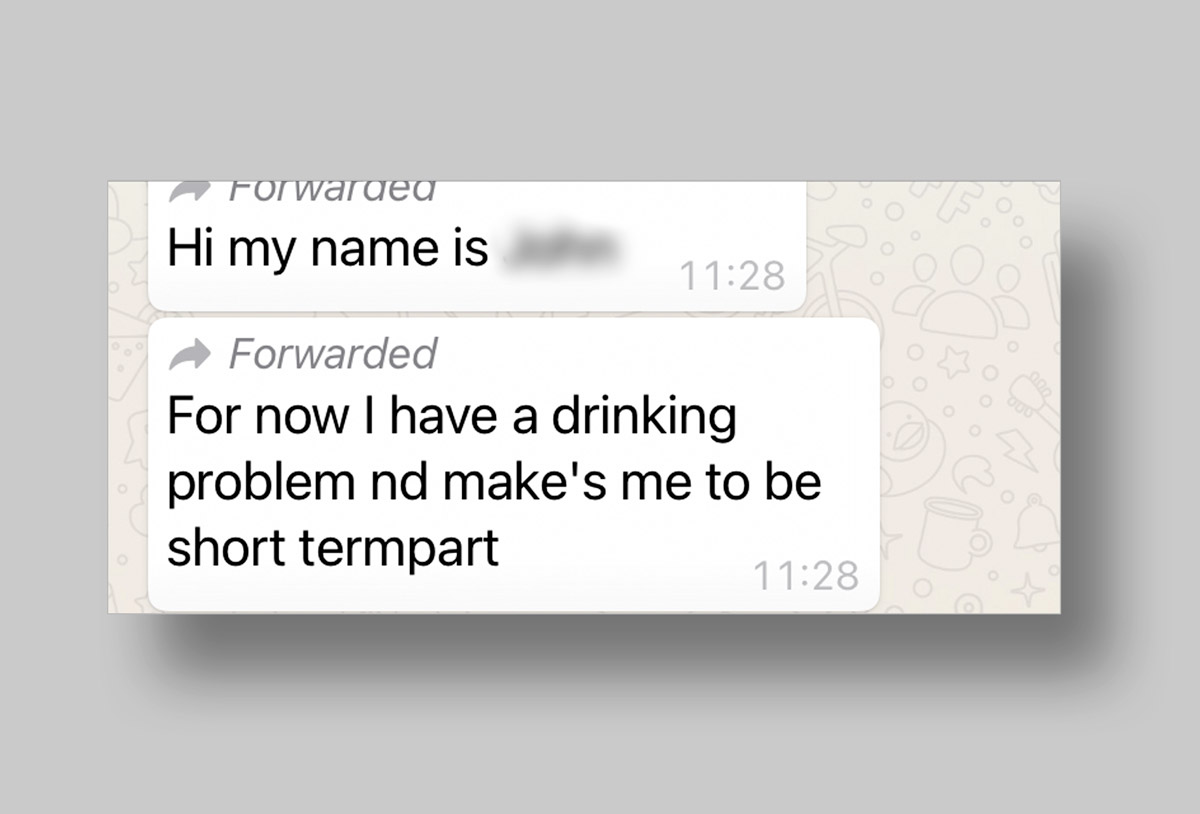
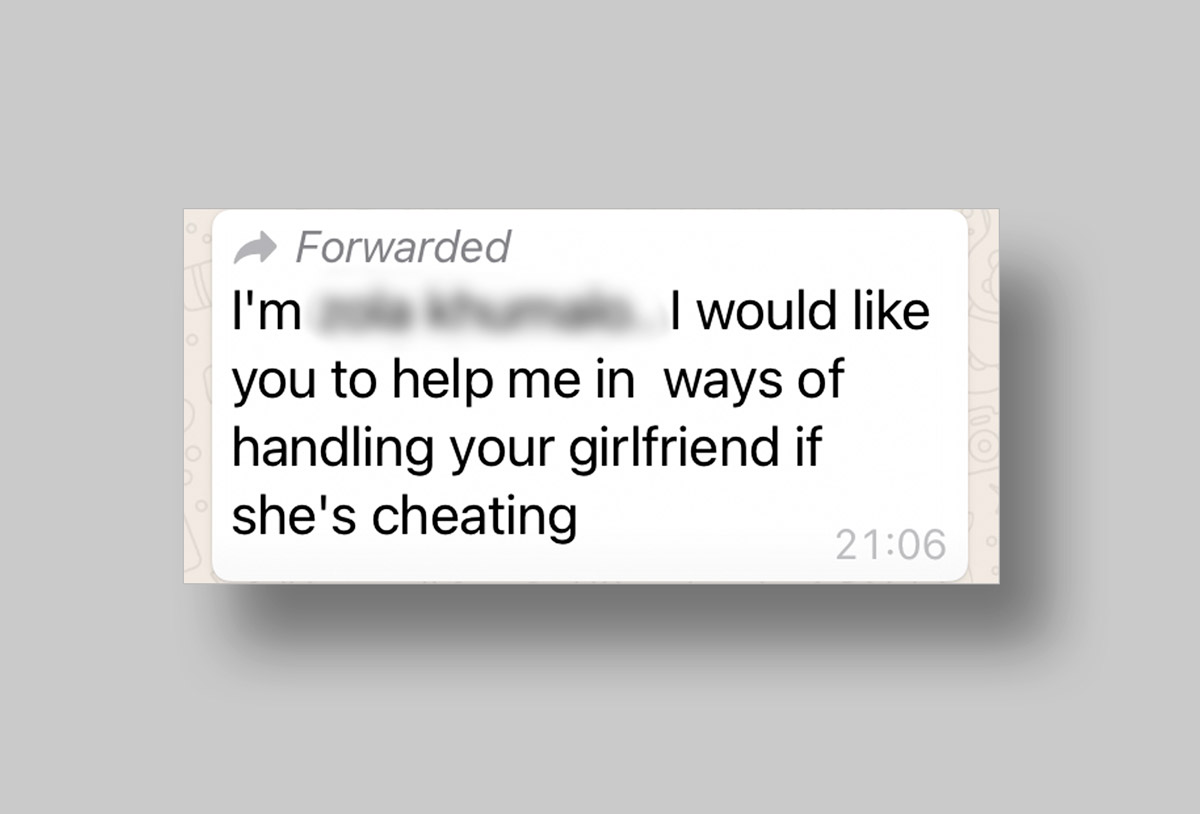
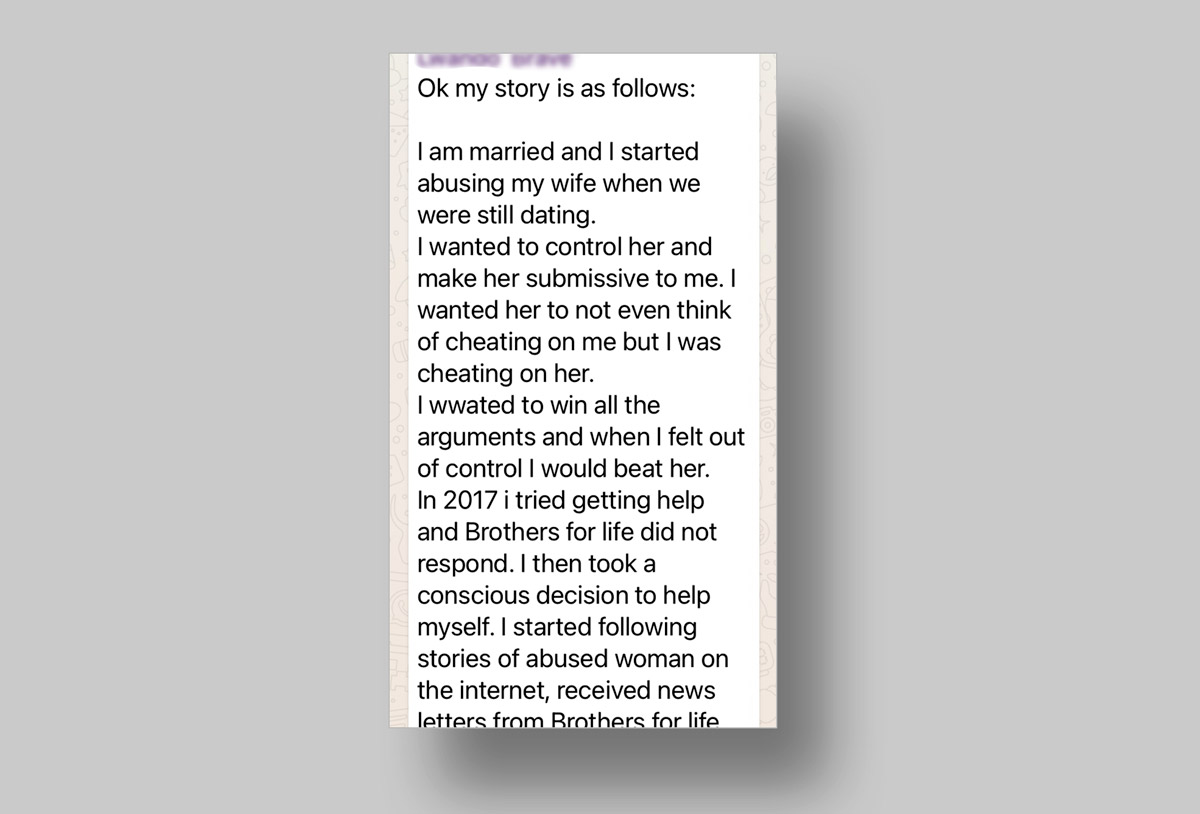
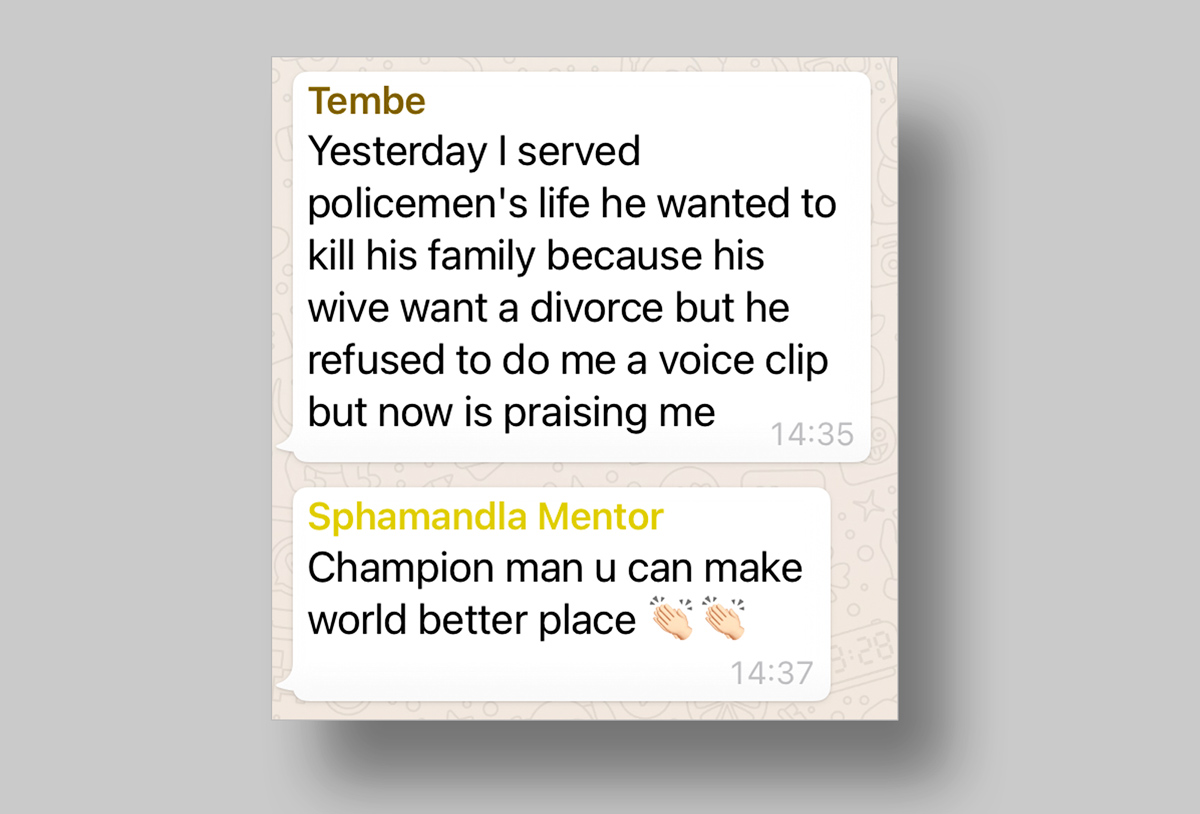
Leave A Comment